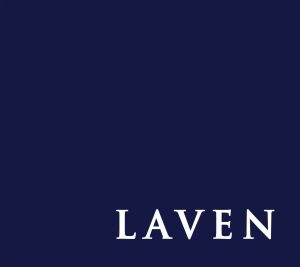Following the Institutional Investor Institute Senior Delegates Research Summit (12-13 January 2017 – Paris) where I was invited to speak on MiFID 2, it was clear that the new European directive concerning markets in financial instruments would be on everyone’s mind ahead of it coming into effect on 3 January 2018. A lot of questions were asked about the directive and its implications. I summarised it as follows:
General impact of the directive on asset managers for both private equity and fund managers
The directive covers four topics:
• It is concerned with better organisational structures and governance
• It regulates the authorisation of new Financial Instruments
• It is concerned with reporting focussed on reducing market abuse
• It expands coverage over non regulated markets eg over organised trading facilities
The directive is so broad that it is often referred to as the “pizza directive”. Although people perceive that it is important, they are unclear as to what parts matter to their specific activities. So here is some clarity for those asset managers interested in conflicts post January 2018 on the basis that it will impact their pay and the way they sale research.
The important differential with prior legislation is that MiFID 2 is intending to change the culture and general behaviour of regulated firms. Thus aspects of the directive focus on regulating behaviour which includes a review of how remuneration rules or commissions will impact sales personnel, in order to limit conflicts of interests. It also cover how the regulator will expect conflicts to be managed by firms.
Management of conflicts and operational implications
For the purpose of this article, the focus shall fall on the management of conflicts of interest – an area of interest to the regulator which will require attention as the standard is set to change from taking ‘reasonable’ steps to taking ‘appropriate’ steps to manage conflicts of interests. So what does this mean?
Regulated firms are already required (under MiFID and SYSC 10) to consider and manage potential conflicts that arise and which could affect their clients. Firms will therefore have and must maintain a detailed policy, taking steps to identify, as well as manage conflicts and, where conflicts remain they must be disclosed to clients. Most firms have policies but it is possible that not all staff are aware of them and that there is little evidence of them being followed.
The new MiFID 2 directive expands this and I quote from its recital: “Firms have a duty to take effective steps to identify and prevent or manage conflicts of interest and mitigate the potential impact of those risks as far as possible. Where some residual risk of detriment to the client’s interests nonetheless remains, clear disclosure to the client of the general nature and/or sources of conflicts of interest to the client and the steps taken to mitigate those risks should be made before undertaking business”
The bulk of the relevant provisions are set out in Article 23 aptly named “Conflicts of Interest”.
In order to determine if a conflict of interest may exist, firms should take in account situations where they:
1. could make a financial gain or avoid a loss, at the expense of a client
2. could gain a benefit if they put the interest of one client over the interests of another client
3. could gain an interest from a service provided to, or transaction carried out on behalf of, a client which may not be in, or which may be different from, the client’s interest
4. could obtain a higher than usual benefit from a third party in relation to a service provided to the client
In order to identify the impact of MiFID 2 on already existing practices, firms should identify the areas that would change as of January 2018. For example, from then on, MiFID 2 will require firms to consider all risks, rather than just “material risk” as is currently the case. This will mean that a larger paper trail of recorded instances of risk will need to be maintained and brought to the attention of responsible persons able to decide about relevant conflict management and disclosures. There is also an express recognition from regulators that currently firms are relying too heavily on disclosing, rather than managing, potential conflicts. Under the new directive conflicts are expected to be avoided. Furthermore, where MiFID requires firms to describe how they manage conflicts and explain the steps they take to remedy them, MiFID 2 will compel firms to address how they will “prevent or manage” conflicts and cover “at least” each of the listed factors above within their compliance processes. The implementing rules also include a requirement that firms must review their policies, and provide a report to senior management on conflicts, at least annually.
Therefore, in terms of compliance this means not only maintaining a register of conflicts but a list of where they are coming from and how they are avoided, before they are due to be disclosed. Nothing is better than to use a strict process of record management in line with existing policy to do this. We believe this will be managed in a way similar to the Senior Manager Regime where a firm will have to demonstrate (as banks do today) that they are compliant, and do so by using meeting agendas which are framed so that no issues are forgotten and that firms can demonstrate the scope of coverage at any of these meetings.
Impact on remuneration and bonuses but also on research
The MiFID 2 directive also states that: “To further protect consumers, it is also appropriate to ensure that investment firms do not remunerate or assess the performance of their own staff in a way that conflicts with the firm’s duty to act in the best interests of their clients, for example through remuneration, sales targets or otherwise which provide an incentive for recommending or selling a particular financial instrument when another product may better meet the client’s needs.”
The cumulative effect of this is that firms will need to look in a lot more detail at their policies on conflicts, notably when it comes to the payment of bonuses but also when it comes to paying for research. There will be a need to be more systematic in how this is approached and firms will be expected to take a much more detailed approach when seeking to identify and manage potential conflicts, and carefully review (and expand) the disclosures included in client documentation. They will also probably need to formulate remuneration matrixes and policies to create a vastly different culture around financial promotion. They will need to review how they decide to charge for research and whether the benefits to their clients are clearly thought through.
Whatever the way forward, at this stage the MiFID 2 solutions with regards to compliance policy changes are not simple and demand a lot of pragmatism and a lot of new processes. This should be worked on as of now, starting with a review of a firm’s activities, the impact on their compliance manual, and then on their monitoring plan. This will require additional registers or at least new information will need to be recorded in registers. At Laven Partners, after more than a decade of providing compliance solutions we know that the best way forward is to use regulatory technology. Our solutions for example the Digital Compliance Assistant, support a fully digitalised and customisable environment to hold compliance processes and information flow. We believe the industry will quickly move towards more technology to ensure compliance with processes (software like the Digital Compliance Assistant provide full audit trails and allow reviewers to check progress on workflows) but also to stay compliant whilst controlling costs. As the industry adapts to MiFID 2 this is a great time to modernise.
If you are reviewing policies or establishing processes in your firm ahead of MiFID 2 we may be able to help you. We have automated software driven solutions for the MiFID 2 directive that relate to non-financial reporting, compliance processes, client categorisation and record keeping.
Find out more about our Compliance services.




